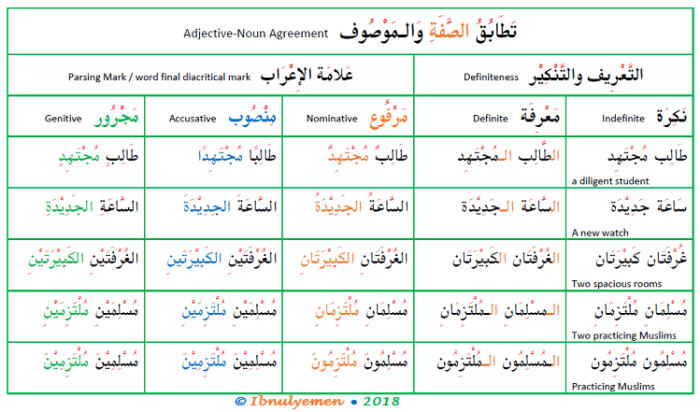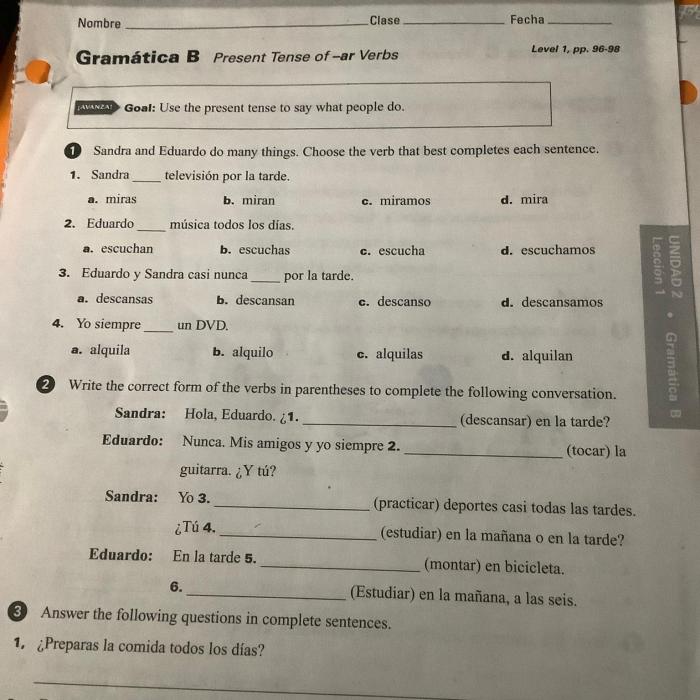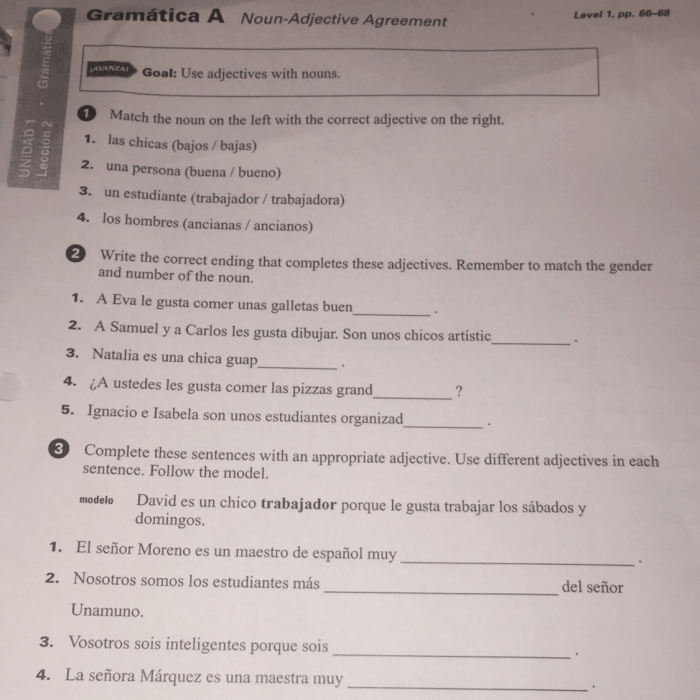Gramatica a noun adjective agreement answer key – Gramatica: A Noun-Adjective Agreement Answer Key provides a comprehensive overview of the rules governing noun-adjective agreement in grammar. This essential reference guide offers clear explanations, examples, and practice exercises to help students master this fundamental aspect of language.
Delving into the intricacies of grammar, this guide explores the basic principles of noun-adjective agreement, including subject-verb agreement and adjective placement. It addresses common exceptions and stylistic considerations, empowering learners to use adjectives effectively and accurately in their writing.
Noun-Adjective Agreement Rules: Gramatica A Noun Adjective Agreement Answer Key

Noun-adjective agreement is a grammatical rule that ensures that nouns and adjectives match in number and gender. In English, this means that singular nouns take singular adjectives, and plural nouns take plural adjectives.
The basic rule of noun-adjective agreement is that the adjective must agree with the noun it modifies in number. This means that if the noun is singular, the adjective must also be singular. If the noun is plural, the adjective must also be plural.
Examples of Correct Noun-Adjective Agreement
- The tallman walked down the street.
- The tallmen walked down the street.
- The beautifulwoman smiled at me.
- The beautifulwomen smiled at me.
Exceptions to the Noun-Adjective Agreement Rules, Gramatica a noun adjective agreement answer key
There are a few exceptions to the noun-adjective agreement rules. These exceptions include:
- Collective nouns, which refer to a group of people or things, can take either singular or plural adjectives. For example, the noun “team” can be used with either the singular adjective “the” or the plural adjective “the team.”
- Nouns that are modified by a phrasecan take either singular or plural adjectives.
For example, the noun “student” can be used with either the singular adjective “the” or the plural adjective “the students.”
- Nouns that are followed by a prepositional phrasecan take either singular or plural adjectives. For example, the noun “dog” can be used with either the singular adjective “the” or the plural adjective “the dogs.”
FAQ
What are the basic rules of noun-adjective agreement?
Adjectives must agree with the nouns they modify in number, gender, and case.
What are some common exceptions to the noun-adjective agreement rules?
Collective nouns, such as “team” or “family,” can take either singular or plural adjectives.
How can I improve my adjective usage?
Practice using a variety of adjectives to describe nouns and experiment with different adjective placements to achieve specific effects.

